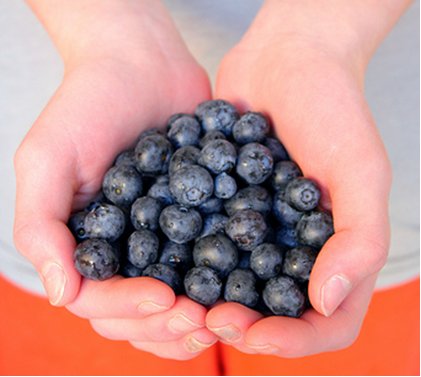Topics
Benefits of Menopause
“Old age isn’t so bad when you consider the alternative.”
~Maurice Chevalier, New York Times, 9 October 1960
Aging: we can’t avoid it or its inevitable conclusion. Nonetheless, we shouldn’t fear it.
As we tread the path from birth to death, we laud youth and fear getting old. In a culture that glorifies being young, thin, and rich, there is little in the ever-present media that sings the praises of growing older and (hopefully) wiser. Especially for women, aging can lead to a feeling of invisibility, so we dye our hair, plump up the lips, whiten the teeth, log long hours on the treadmill, and at least contemplate the potential benefits of cosmetic surgery—all so we won’t look as old as our bodies actually are.
There is one sure-fire marker for women that their bodies are no longer as young as they once were: menopause. At some point in their forties to mid-fifties (even earlier for some – I was 39 when I got my first menopause hot flashes), women become menopausal. Even if they have had children, and often especially if they haven’t, women see menopause as an ending, a loss, instead of as a new freedom from PMS and cramps.
Menopause Quick Links:
- Menopause is a natural part of life
- Menopause brings wisdom
- Menopause as a time of crisis
- Toward a new understanding of menopause
- Dealing with uncomfortable menopause symptoms
- Physical conditions and menopause treatment
- The bioidentical hullaballoo
- Treating menopause as a natural part of life
Menopause is a natural part of life—and full of benefits
Menopause isn’t as bad as you may have heard, and I speak as someone who made it through her own (difficult) menopause. I can assure you that beyond the temporary physical discomforts some experience, there are important benefits to the new stage of life into which you’re headed. (Since I’m neither a doctor nor a therapist, you’ll want to talk to a medical professional before trying any of the suggestions you find here).
While menopause is discussed more openly today, there are still persistent myths that leave some women dreading this “change of life.” But there is no reason to dread menopause, which is a perfectly natural state that all women experience as they cease to menstruate.
Women are born with a finite number of eggs in their ovaries, most of which naturally die off through a process called atresia. During menstruation, the ovaries release a mature egg during the ovulation phase of each cycle. If the egg is not fertilized, it is flushed from the body. During menopause, this process stops, meaning women can no longer become pregnant.
And right there is one of the big benefits of menopause: You can’t get pregnant any more. No more worries about birth control (although condoms with a new sexual partner are wise for other reasons.) No more fear of a “mistake,” no more dealing with colic, runny noses, or having to send your aging body running after a 2-year-old, not to mention paying to send another kid through college on what should be your retirement fund.
As a corollary benefit, your sexual experience can improve dramatically. While some women find that their sexual desire has ebbed, many others find they are capable of receiving higher levels of pleasure as they get older. Sex after menopause may require some additional lubrication, but that’s a small price to pay for more all around satisfaction.
As another benefit, if you have children, in all probability they are in school or even out of the nest, and you may finally have enough time and resources to turn your attention to yourself. When you’re no longer caught up in monthly moon cycles—the hormonal surges and drops that precipitate the emotional ups and downs, the PMS from hell, the mood swings—what a relief. You’re on a more even keel, and you can move into a more balanced way of being.
Part of being able to live a more balanced life is finally having the time, and now the inclination, to turn your attention inward. It’s in this direction that life after menopause really shines. The process you go through during menopause is often a total rewiring of the “hardware” that can lead to a spiritual transformation. It’s the body’s way to recalibrate so you can now receive information you couldn’t get before.
Menopause Brings Wisdom
All the “wisdom” cultures have always turned to their wise elders, often women, as spiritual leaders. When we’re no longer caught up in our own drama, we can turn with compassion to the pain and the suffering of all. We can see with a less emotionally fraught eye. In these cultures, older women are respected and held in high regard. We definitely need to bring more of that perspective to our world.
It is also during the time of menopause that the door opens to receive the wisdom of our lineage. It is a time when your relationship with your mother can undergo a profound change. She may now be of an age when her fears (or the reality) of sickness and death start to crack open the path to the next dimension. She may be more willing to treat you as a compatriot along the path, to pass down stories you may not have heard before when you were “too young” to know the truth of her life. You may start to understand more clearly your heritage, which can reshape the way you thought about your past and free up your future.
Menopause is a great time to do inner work. I highly recommend journaling as a way to learn what is really bothering you, what you really feel, the way in which you react emotionally to your life situations, and all the other information you can discover by being truthful in your journal.
Menopause as a Time of Crisis
So many of us reach menopause at a time when everything in our lives seems to be going wrong: we’ve gained 25 pounds, our marriage has fallen apart, we’re getting laid off, or our home lender has just announced we don’t qualify for a loan modification, or we’re having terrible problems with our teenagers. We feel so angry and OLD. Enter, stage left, the dreaded menopause—an old hag carrying a pitchfork and cackling. How can this be any kind of a godsend?
It is important to remember two things: one, there are natural and safe ways to relieve menopause symptoms. And two, the average menopausal woman is not an aged, decrepit hunchback. On the contrary, women today can expect to live well into their eighties and beyond. There are decades of life left to live, and this stage of life can be even richer and more fulfilling than the past.
Here’s how it works: all the build-up of energy and heat (and often, anger) offers enough of an impetus, for the first time, to get us out of our old routine—the old habits with our spouse or ex, our kids, our boss, our bills. It’s a huge opportunity to have enough energy to finally break through the old patterns and effect change. The “change” can effect whatever transformation you’ve been trying to make for eons.
Toward a New Understanding of Menopause
For thousands upon thousands of years, menopause was seen as a natural part of life. Then, beginning in about the 1960s, our society began to view it is an illness, a “deficiency.” More than hot flashes or weight gain, women fear losing vitality, losing femininity, and losing youth. But if we can look at menopause in a different way, then we may begin to move towards a new understanding of it, and a new acceptance.
Many healers have explored the connection between menopause and kundalini. Kundalini is energy that rests in the body. The word “kundalini” is Sanskrit for “serpent-power” and it is useful to picture this energy as a coiled snake or as energy that is sleeping. It rests at the base of the spine, waiting for us to awaken it and use its great potential. Perhaps a better way to think of it is as a heightened sense of awareness and consciousness. People who have awakened kundalini within themselves report experiencing increased clairvoyance, clarity, ecstasy, and transcendence. It is similar in concept to having a fully integrated seventh energy center, or crown chakra, and of having a great level of inner knowledge.
It is thought that when women allow it, kundalini can be awakened during menopause. Imagine a gate with two valves in the area of your root chakra, at the base of your spine. When young girls begin to menstruate, kundalini energy flows up from the earth and centers itself in the root chakra. It builds in the uterus and pelvic region until the menstrual cycle releases it. Stored-up kundalini causes emotions, feelings, and creativity to become more intense. When a woman is pregnant, kundalini is stored during this period and used in childbirth.
What happens to this energy when women go through menopause? One of the valves of the gate we spoke of earlier closes. Energy flows from the earth but is not released through the root chakra. Instead, it builds up. If you have ever heard menopausal women say they feel like they have PMS all the time, this may be the reason why. This pent-up energy needs to be released in some way. If it cannot descend, it can ascend. Some yogis and healers believe that menopause hot flashes are actually releases of kundalini energy being guided up the spine, and this was my own experience. Just think of the popular term for hot flashes: “power surges.”
We can view menopause not as an illness, but as an opportunity to achieve something that only comes with age – maturity and wisdom. We can become aware on a new level. As kundalini ascends, it passes through each of our energy centers. As we know, energy flow through the chakras has a great deal of influence on our health, so we may feel some physical side effects of the kundalini’s journey, e.g., we may feel bloated or have headaches, heart palpitations, indigestion, etc. Often, menopause symptoms simply disappear over time.
In order to facilitate this transformation, try to spend some time alone in a natural setting every week. Sit in the park with your back against a tree. Walk barefoot in the sand at the beach. Hike a trail in the mountains to watch the sunrise. Or listen to peaceful music and allow your feelings and thoughts to flow up and out on the stream of notes. If you’re having trouble sleeping, allow yourself to take catnaps during the day, and remember, you’re at an age now where you don’t care what your co-workers or neighbors think. Anything you can do to relax and allow what is happening to flow through you will make the whole experience one of validation rather than a misery.
This mindset requires quite a shift from the cultural norm. Instead of being victims of menopause night sweats or hot flashes or fuzzy memories, we are able to see areas that we can make healthier through attention to our body and our emotional health. We accept that in the course of nature there are bumps along the way. We accept that as energy flows, we may experience physical symptoms. We know that these are temporary, that these aches and pains are telling us something vital. We are able to address the menopause symptoms head on without potentially harmful medications or treatments. Above all, we accept that though we are in a different stage of life, it is not a worse stage, or even the last stage. Menopause can be a vital, exciting, and immensely fulfilling time of life.
Dealing with uncomfortable menopause symptoms
As women age, the body produces less estrogen and testosterone. This, in turn, causes a host of physical changes, the process known as “natural menopause.” It is divided into three stages: perimenopause, menopause, and postmenopause. Ideally, the gradual change in hormone levels allows women to adjust to the physical and emotional changes more easily.
Of course, during perimenopause and the period of time after your menstruation has stopped, you may be dealing with some unwanted and unpleasant physical symptoms. Just like the pains of labor—they hurt, but you know the outcome is giving birth to your child—the pains of menopause can feel different when you know you are birthing a new and wonderful stage of life.
Knowing what to expect of menopause can help relieve some of the fears many women feel as they approach this milestone.
The following are common menopause symptoms:
- Irregular periods. This is often a first indication that a woman is entering menopause. Soon you’ll be able to throw away your pads and tampons and panty liners, and never have to worry about wearing white pants again.
- Vaginal dryness. Eighty percent of women in perimenopause will experience this condition. Estrogen is needed to keep the vagina moist and supple. As levels drop, the vaginal walls thin and become weaker. You may experience dryness and increased sensitivity, or even have painful intercourse. Lubrication solves this problem. There are many types available, and sex can be better than ever.
- Menopause hot flashes. The dreaded hot flash. These affect about half of all women in natural menopause and nearly all of those who experience “induced menopause” from:
- bilateral oophorectomy (removal of both ovaries);
- abdominal resection (to treat colon and rectal cancer);
- total pelvic exenteration (to treat recurrent cervical cancer);
- certain forms of chemotherapy or pelvic radiation that damage the ovaries.
During menopause hot flashes, the face and/or chest may get hot, red, and flushed. Your heart may race. The medical community doesn’t know exactly why this occurs, but it may have to do with changes in the circulatory system.
I had a different perspective on my horrendous hot flashes when I realized how they were recalibrating my body to receive higher wisdom—burning away the old stuff and realigning my insides with broader pathways to spirit. To make your hot flashes manageable, avoid things that overheat your body, including too much sun, spicy food, hot food and drink, hot tubs, fiery emotions, etc.
- Menopause night sweats often accompany hot flashes. Some women go through this uncomfortable sweating that leaves you needing to change your sheets and pajamas. As a result, lack of sleep can also be a problem with some women. A good clean diet and regular exercise can go a long way to helping you sleep.

- Emotional changes, such as increased irritability, sadness, lack of motivation, fatigue, anxiety, and tension, can be a result of the decreasing levels of hormones. Remember that emotional health directly relates to physical health, and we cannot ignore these symptoms. If you are prone to anxiety and insomnia, or find yourself sweaty, irritable and angry, or depressed and tired, see a physician of Traditional Chinese Medicine or Ayurveda for treatment to balance you. We each can react differently to the hormonal changes happening in our bodies and need individual treatment, not one-size-fits-all medication.
Physical Conditions and Menopause Treatment
Quite differently than the way birth has been taken out of the home and turned into a hospital “procedure,” in 2005, the National Institute of Health (NIH) decreed that menopause should be “demedicalized.” Dr. Carol Mangione, chairperson of a NIH panel on menopause treatment, said,
“Most physicians should not treat this as a medical condition. It is not something that has to be treated automatically.”
Dr. Mangione cited studies that have shown as many as one-third of menopausal women who took placebos reported improvement in their symptoms, which is a far larger percentage than usual in medical studies. Dr. Mangione says, “It suggests that there is a big segment of the population out there who probably are going to be better without any treatment.”
The NIH and the medical community are coming to the realization that menopause is a normal stage of life. Every single woman who reaches her late forties and early fifties will experience this natural process. This is not to say that menopause does not bring special concerns. There are some illnesses and medical conditions that are associated with menopause, but they should be seen more such as related to the inevitable process of aging then to menopause specifically.
- Osteoporosis. Older women with osteoporosis have decreased bone mass, making breaks and fractures more common. Decreased levels of estrogen are directly connected with the development of osteoporosis, as are low levels of Vitamin D, too much caffeine and colas, and too little calcium and magnesium in the diet.
- Heart disease and stroke. After menopause, a woman’s risk of developing heart disease greatly increases. In fact, fifty percent of women’s deaths are due to cardiovascular disease. Many factors affect the health of the heart and circulatory system, not only a decrease in estrogen. Studies have not shown any decrease in risk for women who use artificial hormone therapy with menopause.
- Breast cancer. The incidence of breast cancer rises as women age. About seventy percent of women with breast cancer are over age fifty. Studies have also shown that when women take artificial hormones for extended periods of time, they have a significantly higher risk of developing breast cancer.
- Ovarian cancer. The risk of ovarian cancer increases with age. Again, long-term estrogen replacement therapy is shown to increase the risk.
- Depression. Menopausal women have an increased risk of developing depression. While hormone levels may be involved for some women, many other factors play into depression.
I recognize that each of these illnesses is very serious. Saying that menopause is not an illness is not to say that these are not legitimate concerns. Of course they are. As someone who has battled cancer, I understand how frightening that specter can be.
When the medical model of menopause is an illness or “ovarian failure” (sounds fatal, doesn’t it?), the usual response is drugs. So doctors started testing menopause hormone replacement therapy (HRT). Hailed as a panacea for a “hormone deficiency condition due to ovarian failure,” HRT became a standard prescription for any menopausal women. It was thought that boosting hormone levels would make women feel younger, better, and healthier. However, turning to treatments like hormone therapies that have unknown long-term effects is not the answer. While these may relieve menopause symptoms in the short-term, too little is known about how they impact your health.
The pendulum shifted in 2002 when the United States government called off the Women’s Health Initiative, a study of menopause hormone replacement therapy, because the artificial hormones were too risky for women to take. We saw an increase in breast cancer, ovarian cancer, blood clots, heart disease, stroke, fractures, and colon cancer from long-term hormone replacement therapy. And so millions of women went off HRT or didn’t start it, opting instead to use more natural methods of symptom relief.
Today, it seems that HRT is once more becoming prevalent in “treating menopause.” Dr. Cynthia Stuenkel, professor of medicine at the University of California at San Diego, says:
We have had time and resources to carefully tease out the data and perhaps collect a little bit more, and what we have found at least reassures us that for some women who have menopausal symptoms, HRT is not the ominous prescription we thought when the data first came out.
What has changed? The method of interpreting the data. Before, data was looked at for all women age 50-79. When the study results were analyzed only in terms of the younger participants, new patterns emerged. Those findings, according to researcher Dr. JoAnn Manson of Brigham and Women’s Hospital, and professor of medicine and women’s health at Harvard Medical School:
Women who were in their 50s in the estrogen-alone trial tended to have less coronary artery calcium if they received estrogen compared to placebo. And coronary artery calcium is … a strong predictor of future risk of coronary heart disease, so these results lend support to the theory that estrogen may slow early stages of arteriosclerosis.
In other words, if you are in your fifties and use HRT in the short-term, it won’t harm your health; in fact, it may even help it. Dr. Nieca Goldberg, a cardiologist, says, “Women can sort of relax a little—that when they’re younger and need to go on hormone therapy because of their symptoms, that this may not be detrimental to their heart.”
May not be detrimental to their heart. The Journal of the American Medical Association found that those using HRT increased their risk of stroke by 32 percent. Age didn’t negate the risk for that. And during the period when millions of women stopped taking HRT, the number of new breast cancer cases dropped. While this can be due to a number of factors, it certainly gives one pause. While many still rely on hormone therapy, menopause HRT treatments, many also have countering views. As actress Julie Walters said:
There’s something great about going through the menopause and being in your 50s.You trade in that youthful thing, where everything is brand new. You swap it hopefully for some kind of wisdom; all the stuff you’ve learned. And I think HRT… kind of stopped that.
The Bioidentical Hullaballoo
Searching for an answer has brought many to bioidentical hormones, also often called “natural hormone therapy.” The appeal of bioidentical hormones is their claim that they are manufactured to be identical to those made in the body. “Identical” is perhaps a bit of a misnomer: they are identical in molecular structure, but they come from plant chemicals extracted from soy and yams. The marketing pitch is that the body isn’t able to tell these bioidentical hormones from hormones that are naturally produced in the ovaries. Natural hormone therapy for menopause would seem to be the perfect solution. Relieve hot flashes, menopause night sweats, insomnia, depression—all with bioidentical hormones. And with celebrities swearing by the treatments, many are persuaded.
But here’s the reality. Bioidenticals are manufactured in a lab. They are synthesized from ingredients not natural to the body and then undergo a process to become a copy of the body’s hormones. According to the National Women’s Health Network, many pharmacies that are claiming bioidenticals as natural remedies get the ingredients from pharmaceutical companies. Not exactly the picture we all had in mind, is it?
Further, there have been few studies attesting to the efficacy of bioidentical hormones. They have been shown to relieve menopause symptoms, but, on the other hand, they seem to increase the risk for endometrial cancer just like synthetic HRT. There are also claims that bioidenticals can be made to match your specific hormones. One common method of testing hormones is to take a swab of your saliva so pharmacies can match it to you. But hormone levels fluctuate throughout the day. You cannot use hormone levels from a one-time swab to determine deficiencies nor to create a replacement hormone. If you do decide to go the hormone replacement route, make sure to test your hormones with a more comprehensive test, and then retest every 3-6 months to monitor.
Again, when it comes to the long-term effects and risk factors involved, neither traditional HRT nor BHRT offer satisfactory results for women. So, if you are suffering from menopause hot flashes and night sweats, if you can’t sleep or remember where you put your keys, what do you do? Do you suffer? Do you regard menopause as the beginning of the end, and an unpleasant end at that? What is required is a shift in thinking, a demedicalization of menopause. As women, we need to take menopause away from doctors and put it in our own hands.
Treating Menopause as a Natural Part of Life
Most women do not need treatment for menopause outside of a balanced diet, regular exercise, and a commitment to healthy living. This in turn helps to reduce risk of heart disease, stroke, certain types of cancer, and other age-related illnesses. But what do you do if you need relief from especially painful or irritating symptoms? Find what works best for you to achieve balance and overall health. These include:
- Diet. Certain foods can exacerbate menopause symptoms. For instance, consuming too much caffeine can trigger hot flashes. It is best for menopausal women to avoid caffeine and carbonated drinks, which are linked to bone loss. Commercially-raised meats have high amounts of saturated fats (laced with chemicals you don’t want to even hear about), which decrease the body’s ability to metabolize estrogen. Sugar also inhibits your liver’s ability to metabolize estrogen. In addition to colorful fresh fruits and vegetables, and whole grains, add foods that contain phytoestrogens (found in soy, legumes, breads, cereals, and nuts) and isoflavones (flax seeds and sesame). Taking supplements like Vitamin D, B vitamins, and magnesium can also help. Work with a qualified nutritionist.

- Herbs. While certain herbs have been recommended for treating menopausal symptoms, some of them can actually be quite dangerous. I wound up being hospitalized from a toxic reaction to black cohosh. Herbs may also interact with any medications you are on. I recommend going to a doctor of Traditional Chinese Medicine or an Ayurvedic practitioner to find out exactly which natural remedies work for your particular make-up, if you haven’t been able to relieve your symptoms with life-style changes.
- Diet. Certain foods can exacerbate menopause symptoms. For instance, consuming too much caffeine can trigger hot flashes. It is best for menopausal women to avoid caffeine and carbonated drinks, which are linked to bone loss. Commercially-raised meats have high amounts of saturated fats (laced with chemicals you don’t want to even hear about), which decrease the body’s ability to metabolize estrogen. Sugar also inhibits your liver’s ability to metabolize estrogen. In addition to colorful fresh fruits and vegetables, and whole grains, add foods that contain phytoestrogens (found in soy, legumes, breads, cereals, and nuts) and isoflavones (flax seeds and sesame). Taking supplements like Vitamin D, B vitamins, and magnesium can also help. Work with a qualified nutritionist.
Besides herbal remedies, there are physical measures you can take to handle menopause symptoms.
- Yoga. Basic poses, such as mountain, warrior, triangle, etc., can help women restore balance and keep their bodies fit. Beneficial to both mind and body, yoga can restore a needed sense of self and enhance the mind-body connection.
- Exercise. If ever there was a miracle cure, it is exercise. Moving the body does wonders for our physical health, as well as our mental and emotional health. Whether you choose to walk, bike, swim, or take dance classes, move your body each day.
- Sun. Exposure to the sun provides needed vitamin D, which elevates mood. When we get out into nature and allow ourselves to feel the ground beneath our feet and the sun on our faces, it brings needed order to our energy centers. But in areas where the midday sun is too strong, try being outdoors in the early morning or just before dusk. Don’t overheat.

Menopause is a natural stage of life, and if we choose to, we can see the unlimited opportunities it presents to us. Whether you believe that kundalini energy is waiting to awaken through menopause or you simply view menopause as a time of increased freedom and joy, see it as a positive change in your life. Above all, see the truth that menopause is not an illness. We are not victims, nor is this a tragedy. Learn to see menopause in a different light, and a great deal of the fear and dread will disappear. In its place, we find new awareness and acceptance. Fear cannot live in the dark—only truth can, and truth heals.
